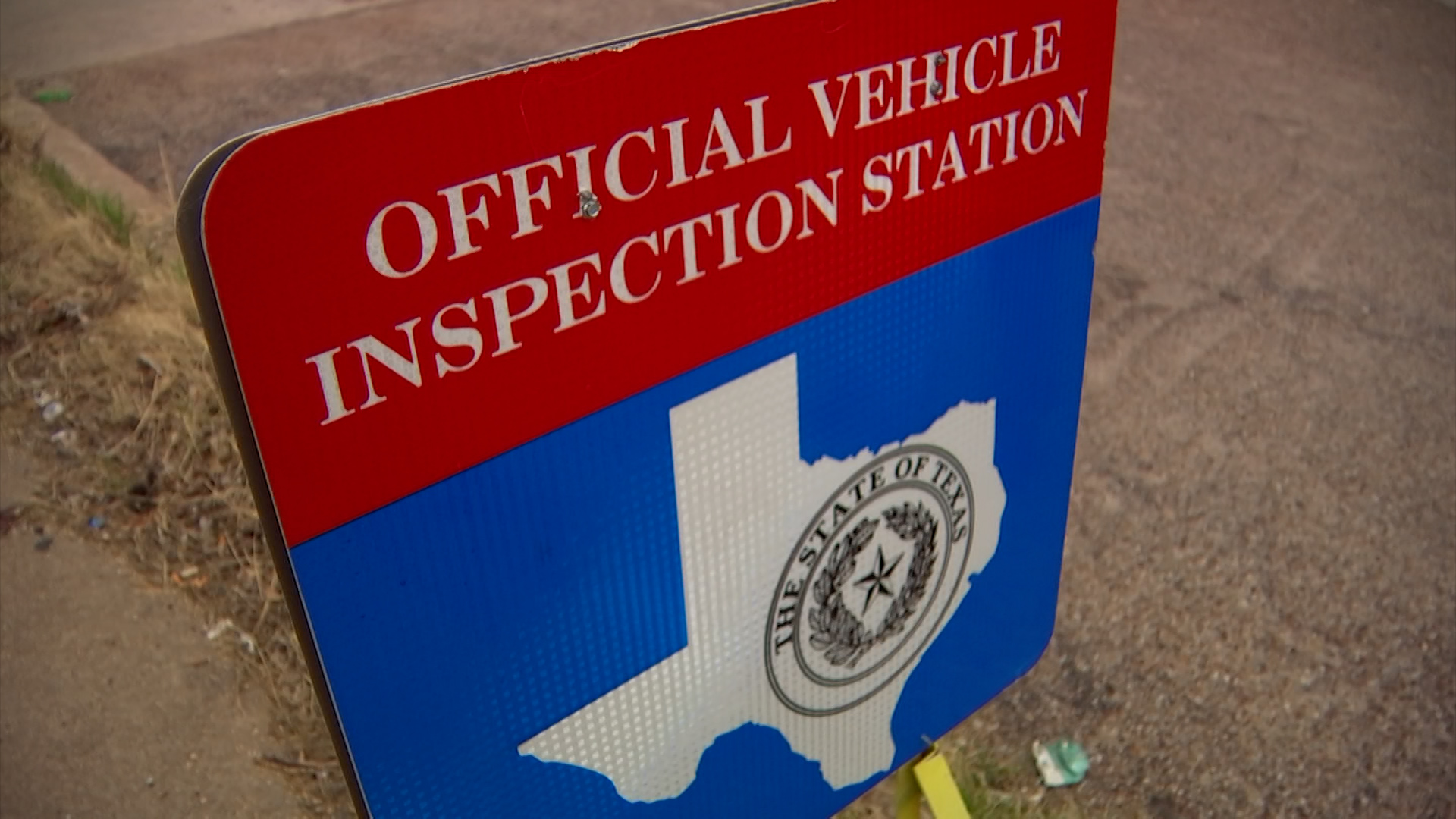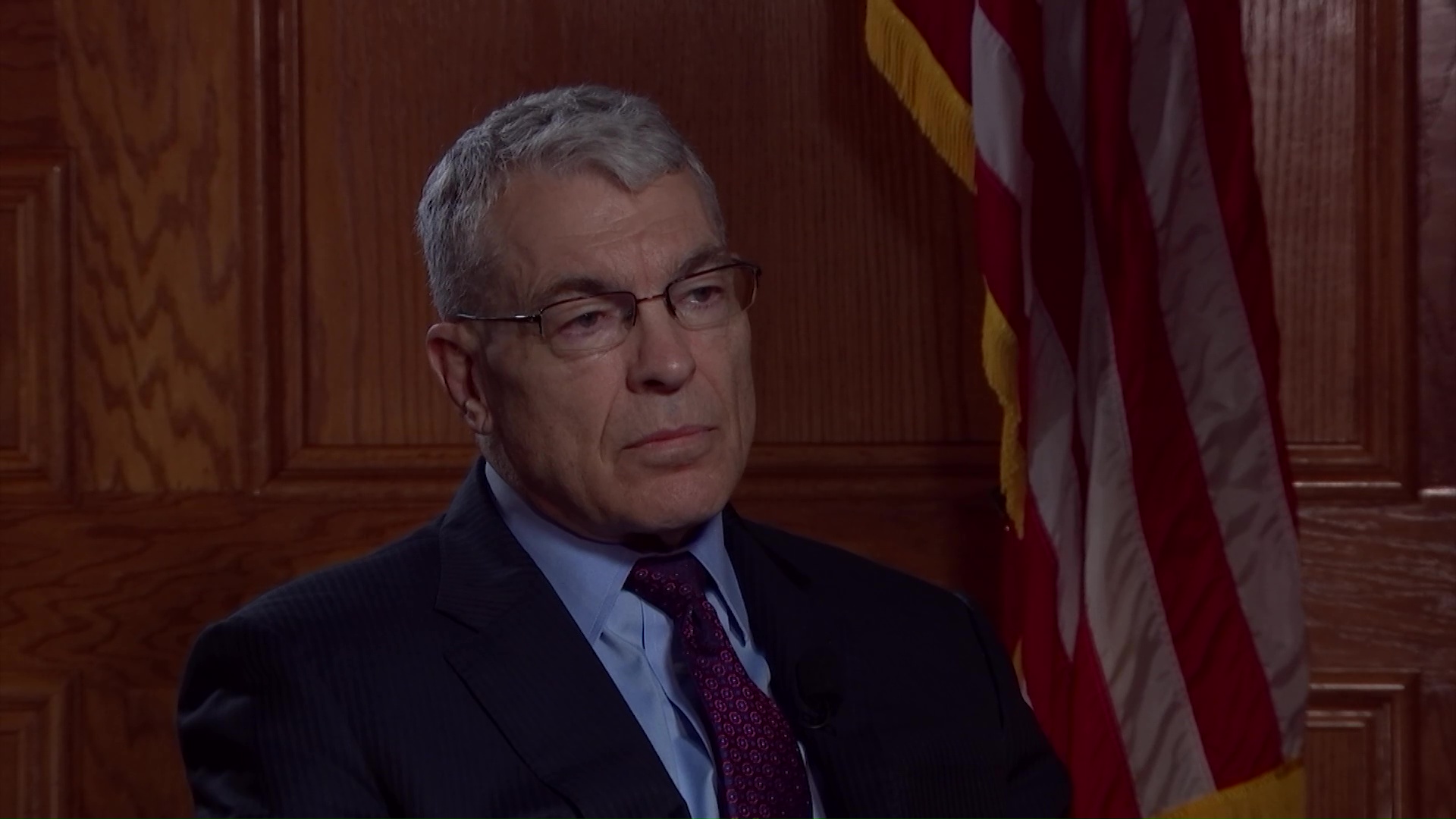The Texas Department of Public Safety remained tight-lipped Monday about the identities of two employees arrested late last week on charges that they protected vehicle emissions stations, suspected of falsely passing cars.
The DPS has declined to release the employees’ names or the names of nine others arrested and detained in the investigation, conducted by the Texas Rangers. The DPS said the two agency insiders took money in exchange for helping stations avoid detection as they faked emissions tests, and that the investigation is ongoing.
Meanwhile, some air quality experts question whether the widespread emissions inspection cheating NBC 5 Investigates has exposed in recent months is piling on more pollution in Texas cities.
Since May, the DFW area has experienced more than 30 days of unhealthy levels of ozone causing concerns, especially for people with asthma and other lung conditions.
Get DFW local news, weather forecasts and entertainment stories to your inbox. Sign up for NBC DFW newsletters.
And, as NBC 5 Investigates has learned, four months after we revealed that millions of cars may be bypassing emissions checks, Texas still has not implemented a software fix that could help cut the fraud.
To understand why there are concerns about fake inspections impacting air quality, we took a closer look at one emissions station connected to the ongoing DPS investigation.
In June, NBC 5 Investigates set out to find that state-licensed inspection shop known as South Side Inspections.
Texas DPS records said we should find South Side at 2719 Romine Avenue in Dallas. But when we went to that address, we discovered the street number doesn’t exist. Instead, it’s a parking lot next to a snow cone stand, where they didn’t know anything about state inspections happening.
“If you’re not a customer, you can't even come in our parking lot and do anything,” a manager at the snow cone stand told us.
One day in June, we sat nearby and watched that parking lot for an hour. We didn't see inspections happening either. But during that hour, state records showed South Side reported inspecting 33 vehicles -- about one every two minutes.
The records showed in less than five months the shop has issued inspections for more than 56,000 vehicles. There have been 55 days when South Side cranked out more than 500 inspections in a single day, according to the records.
Law enforcement investigators told us numbers like that are a red flag because they said it's not possible for a small shop to turn out legitimate inspections that fast.
On Friday, the Texas Rangers served a search warrant tied to South Side Inspections at another address on Romine Avenue. The DPS has declined to provide the exact location.
The agency said it detained four people, in addition to the two DPS employees arrested, and said five other people were arrested in April in connection with the investigation.
Earlier this year NBC 5 Investigates reported a group of Travis County fraud investigators believes as many as five million Texas cars falsely pass emissions tests each year, at shops that take cash under the table.
“Obviously, it's outrageous. It's a disgusting story to hear about because it really is taking away health protection from the entire community,” said William Barrett, national senior director, advocacy, clean air, with the American Lung Association.
Barrett worries some of the cars that falsely pass are cars that would fail a real emissions test.
“When these exhaust systems are not working the way they're supposed to, or if they've been tampered with, they can produce tens to hundreds of times the harmful emissions that they're supposed to," Barrett said.
That creates more ozone, a corrosive gas that can cause something like a sunburn in your lungs. Ozone is the main ingredient in the smog we see on “ozone action days” that leave some people struggling to breathe.
“I can immediately tell that the air is different,” said Cynthia Rabb who has asthma, with a long family history.
Last year, Rabb’s 34-year-old daughter died suddenly of asthma-related complications.
“I think about her every day. I miss her. I would have easily exchanged my life for her to be here with her sons,” Rabb told NBC 5 Investigates.
Rabb is now raising her daughter’s two boys who also suffer from asthma and said they feel it too when there is summer pollution.
“I just feel very out-of-control and I just don't feel right,” said Success Rabb, who is 10 years old.
Cynthia can’t believe there are people who would take money in exchange for faking emissions tests designed to protect people’s health.
“They're not thinking about who it hurts, you know, people don't think about that unless it happens to them or somebody in their family,” Rabb said.
FAKE INSPECTIONS, REAL PLATES
As NBC 5 Investigates has reported, the state's emissions testing computer system, overseen by the Texas Commission on Environmental Quality (TCEQ) does capture data that shows when shops may be cheating.
The system can see signs that an emissions analyzer has been plugged into a surrogate car, or into a simulator that mimics a car's on-board diagnostic system.
But when potential fraud is detected, the system is not programmed to stop the inspection in real-time and prevent the vehicle from getting a false passing report.
In April a TCEQ spokesperson told us, "To stop an inspection in real-time at the station when patterns in inspection data indicate potential fraud, the emissions inspection analyzer software would have to be modified. This change would be a joint project between TCEQ and DPS”.
In April, DPS Director Col. Steve McCraw pledged to put pressure on the TCEQ to change its software, saying he was frustrated with the amount of inspection fraud state troopers have to police.
McCraw said he believes the solutions lie in the hands of the TCEQ.
“I'm confident they want the same thing as we do. And I can assure you that both of us will be working towards that end,” McCraw said in the April interview.
But months later, the TCEQ has not re-programmed the analyzer software.
Neil Carman, Texas air program for the Sierra Club believes the state should have acted faster.
“This looks very bad for the state environmental agency to be allowing fraud to take place in its Clean Air Act regulatory program," Carman said.
Carman believes the fraud undermines a central part of the state’s plan to comply with federal air quality rules.
"The challenges that TCEQ has are really immense, but still I think the agency could have fixed this problem a while ago,” Carman told NBC 5 Investigates.
Records we obtained show as far back as 2016 The North Central Texas Council of Governments (NCTCOG) suggested that the TCEQ address the software issue.
In a memo commenting on TCEQ air policy plans an official at the NCTCOG recommended the TCEQ eliminate fake inspections, "…by updating software to abort test if the VIN (vehicle identification number) manually entered does not match the VIN read by the analyzer."
Officials at the NCTCOG said in recent years they have not been able to get an explanation for why TCEQ hasn’t made software changes that would stop fake inspections in real-time.
“When you say you can't, what does that mean, why can't you? Is it because of funding? Is it because the program is too complicated?” said Chris Klaus, senior program manager for air quality management at the NCTCOG.
TCEQ Chairman Jon Niermann declined NBC 5’s repeated requests for an interview. In an email, Niermann told us he is now talking about software changes with the DPS.
Niermann said, "Director McCraw and I discussed some of the potential challenges to implementation, including legal and administrative concerns. These may also include novel challenges; TCEQ is reaching out to other states to understand their capabilities for discussion with DPS. Moreover, any solution will have limitations. For example, we expect that some number of scans may be misidentified as fraudulent, inconveniencing innocent vehicle owners and inspectors.”
Niermann added that he is "...not in a position to comment..." on requests the agency may have received years ago to change the software before he became chairman.
As for when a fix might happen, Niermann said "We do not yet have a project timeline.”
Cynthia Rabb hopes they will move faster.
“They need to be a little bit more serious about the situation of what the air is doing to people that have lung conditions,” Rabb said.
Every week state records show more shops conducting seemingly impossible numbers of inspections.
We tried to reach the man listed in DPS records as the owner of South Side Inspections, the shop we couldn't find near the snow cone stand.
We couldn't get through on the phone number the company gave the state, and our emails and text messages were not returned.
State records show the company also listed a mailing address at a home in Waxahachie.
We watched that address too, during the same hour we had a camera near the snow cone stand parking lot. We didn't see inspections happening at the house either.
We reached out to the homeowner, and through an attorney, she denied any connection to South Side Inspections.
DPS reports we obtained show the woman once owned a different state inspection business, where last summer, DPS auditors found she conducted more than 5,000 fraudulent emissions tests.
NBC 5 Investigates reached out to the U.S. Environmental Protection Agency, which oversees the state inspection program to ask if the agency has concerns about the number of fake inspections in Texas.
The agency said in a statement that extensive fraud in a testing program can prevent a metro area from meeting federal air standards. The statement said the EPA is committed to working with states to address these challenges.
In a statement, the DPS said the Texas Rangers continue their investigation stemming from South Side inspections and expect to make more arrests.




